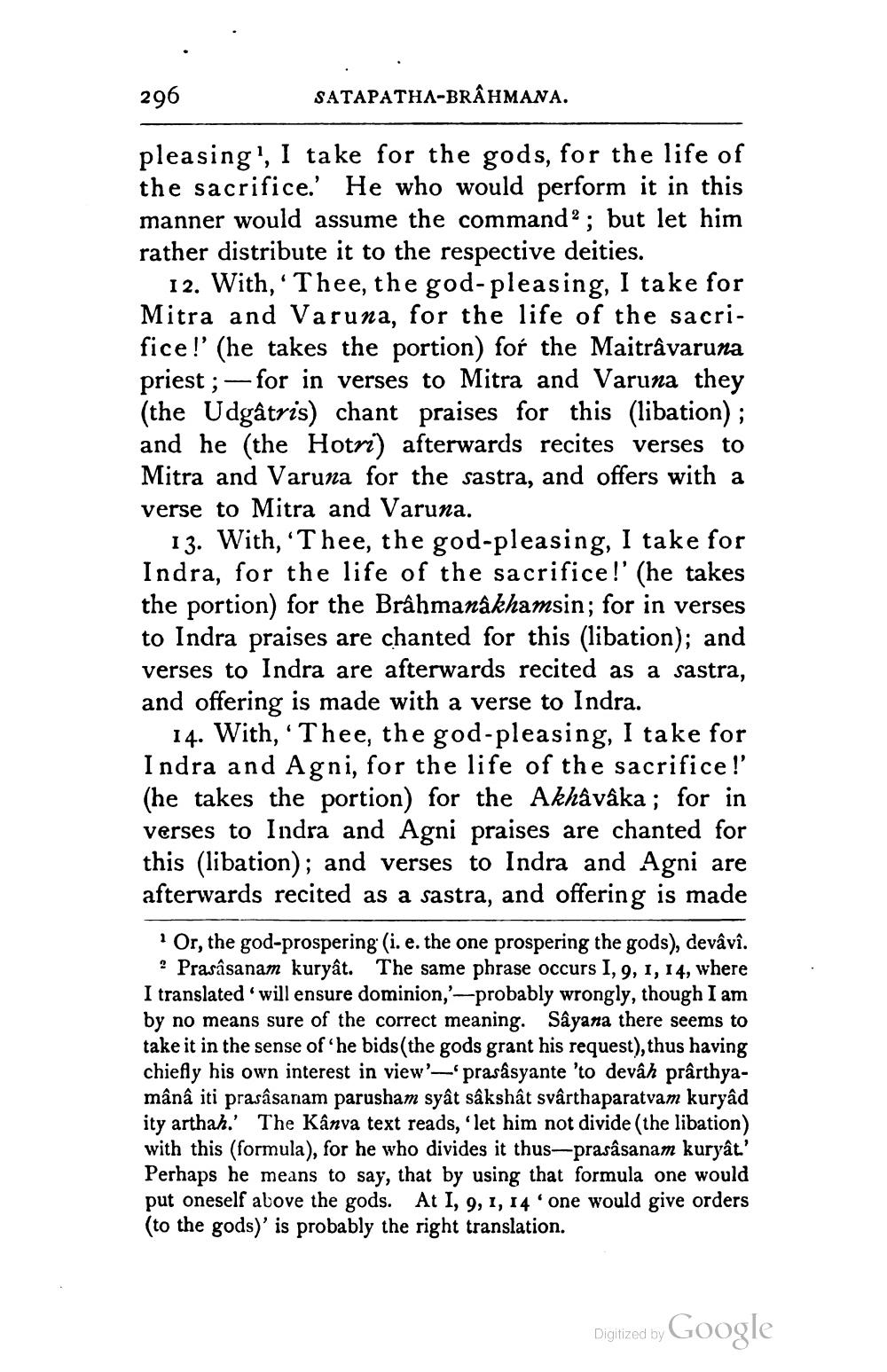________________
296
SATAPATHA-BRAHMANA.
pleasing !, I take for the gods, for the life of the sacrifice.' He who would perform it in this manner would assume the command?; but let him rather distribute it to the respective deities.
12. With, 'Thee, the god-pleasing, I take for Mitra and Varuna, for the life of the sacrifice!' (he takes the portion) for the Maitrâvaruna priest; — for in verses to Mitra and Varuna they (the Udgâtris) chant praises for this (libation); and he (the Hotri) afterwards recites verses to Mitra and Varuna for the sastra, and offers with a verse to Mitra and Varuna.
13. With, 'Thee, the god-pleasing, I take for Indra, for the life of the sacrifice!' (he takes the portion) for the Brâhmanâkhamsin; for in verses to Indra praises are chanted for this (libation); and verses to Indra are afterwards recited as a sastra, and offering is made with a verse to Indra.
14. With, 'Thee, the god-pleasing, I take for Indra and Agni, for the life of the sacrifice! (he takes the portion) for the Akhâvâka ; for in verses to Indra and Agni praises are chanted for this (libation); and verses to Indra and Agni are afterwards recited as a sastra, and offering is made
? Or, the god-prospering (i.e. the one prospering the gods), devâvî. ? Prasasanam kuryât. The same phrase occurs I, 9, 1, 14, where I translated will ensure dominion,'-probably wrongly, though I am by no means sure of the correct meaning. Sâyana there seems to take it in the sense of he bids (the gods grant his request), thus having chiefly his own interest in view'—'prasâsyante 'to devâh prârthyamânâ iti prasasanam parusham syât sâkshât svârthaparatvam kuryâd ity arthah.' The Kanva text reads, 'let him not divide the libation) with this (formula), for he who divides it thus-prasâsanam kuryât.' Perhaps he means to say, that by using that formula one would put oneself above the gods. At I, 9, 1, 14 one would give orders (to the gods' is probably the right translation.
Digitized by Google




